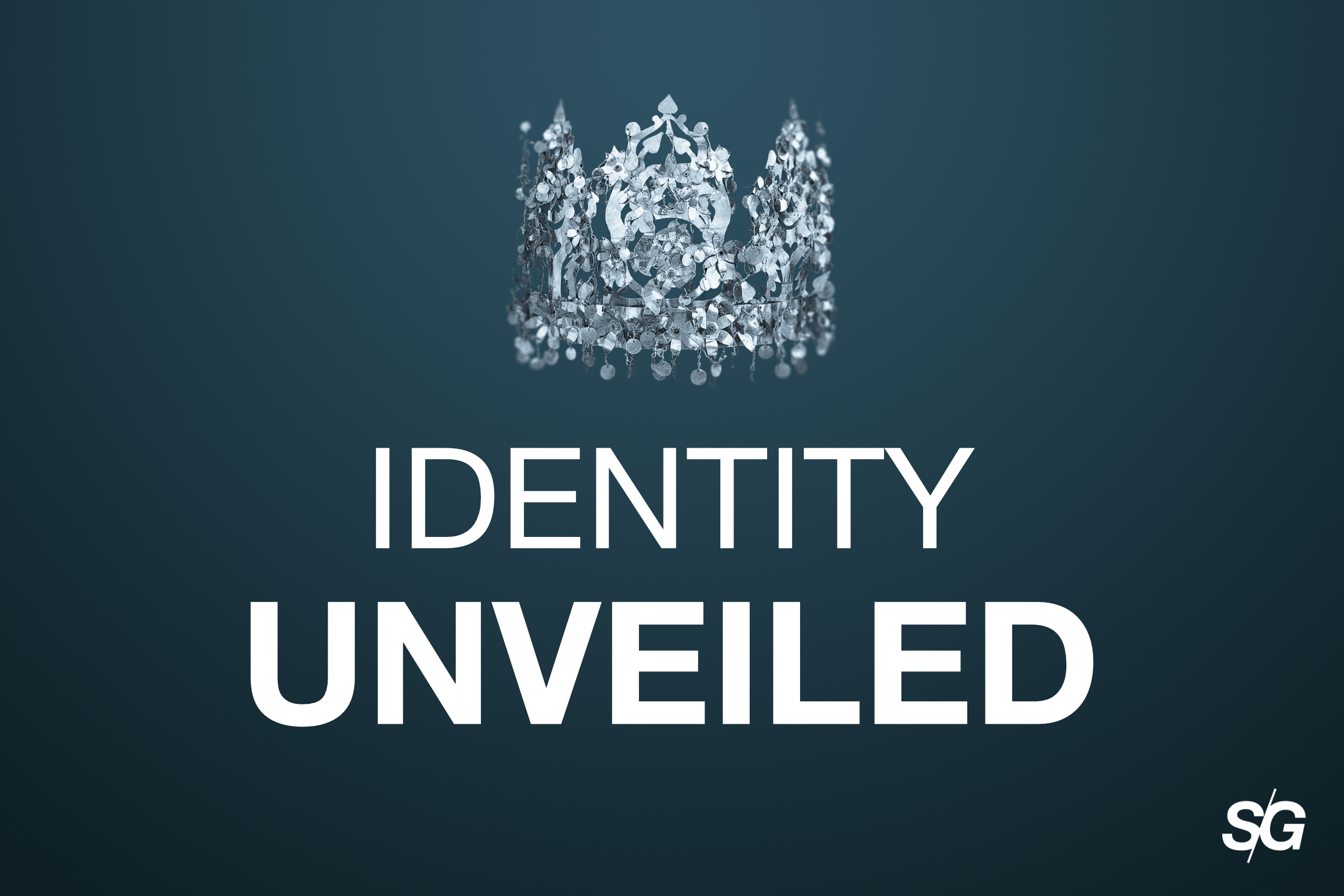Also Available On






Podcast Transcript
This is Shirene Gentry with the Identity Unveiled podcast.
Before we can explore what IS your identity, it is worth the discussion about what walking in the wrong identity looks like.
As I think back to my adult life including my 20s and 30s, here’s what time of reflection reveals:
- I was going through the motions of living.
We all go through daily routines that sometimes cause a rut, but how is this different? While my children were still very young, I was outwardly going through the behaviors of living that were expected from a stay at home mother. It was more than just a busy day. It was having a busy day with all good things that kept me from dealing with deeper concerns of the heart. The scale was top loaded with activity. I thought if I could anchor my time, my focus, and my thought life in activity, I wouldn’t need to pay attention to the painful places in my heart. My thought was that if I stayed busy, I would not need to acknowledge they even existed. In my mind, I was doing the expected Christian thing by glossing over my feelings and emotions.
Are you going through the motions of daily living in such a way that they may be a covering for something deeper?
In the book Everybody’s Normal Till You Get to Know Them, the author explains that we can incorporate many things into our lives that prevent our authenticity – anything that may keep us from dealing with deep and significant issues.
He gives the following examples: Superficial conversation, humor, timidity, brazen self-assurance, intelligence, ignorance, busyness (emphasis added), work, competence, success, even spirituality.
He elaborates that these things are veils around our hearts.
For me, busyness kept me from myself. To be busy practically and daily meant that I didn’t live from the heart although my outward actions appeared that I had it all together.
Rick Warren’s book Purpose Driven Life posed a question in chapter 3:
What would my family and friends say is the driving force of my life? What do I want it to be?
The answer I journaled in 2003 is quite telling:
“To be a good wife and mother – i.e. keep everybody “going” on a daily schedule, run errands, take care of all the needs of running a house smoothly. To be a woman of respect and a leader in the church. To be a good example for all who know me.”
I go on to write, “What I truly want is to have a purpose with God-given direction as to why he put me here and gave me the life he did. I also want a deeper, more intimate relationship with God (I’ve been working on this one for months).”
Doing. Doing. Doing. At least I was beginning to get on the right track in the second part of my answer.
If you have taken the DISC profile, you discover about that you are more people or more task oriented. Since the scale tips for me to be more task oriented, you can see that performance and daily activity was actually where I derived my worth and identity. It became an easy default for me.
Had I taken care of the household?
Was I involved at church?
Had I signed up my children for activities?
Now that I look back over these two journal entries, it becomes crystal clear that there was a significant disconnect in my doing and my being – that my desire for outward motions to appear all together was not in alignment with a desire for living with purpose and a God-given destiny.
My question I pose to you: What do you hide behind? Whatever you hide behind will give the false illusion that you’re managing just fine and that you’ve managed to figure out what is needed in your life to keep your heart distant. The only problem is that your heart is not healed. And God knows that better than anyone else, whether you admit it to yourself or not.
What other factors were in my life before I could begin the process of walking in my God-given identity?
- Unresolved places of pain in my heart.
I’ve briefly mentioned this in the first point of this podcast, but let’s not gloss over this. Whether these painful places were legitimate or not – for me, 1 was, 1 was not – they still took residence in the deep recesses of my heart. I had actually buried them so deeply, I was hoping that if I continued to live without acknowledging them, perhaps time would be the dissolving agent that eventually make them go away. And thus became the learned behavior to go through life busily that became reinforced daily, weekly, monthly, yearly.
My question I pose to you: Are there unresolved places of pain buried deep within your heart?
And if there are, do you:
- Need to ask for forgiveness?
- Need to grant forgiveness?
A lack of forgiveness – for yourself or others – will prevent you from walking in the identity you were meant to have.
Forgiveness will also be addressed in a future podcast.
A third factor present in my life that indicated I was walking without confidence and assurance:
- A distorted outlook on life.
Do you have a metaphor for your life? I can vividly remember thinking in my 30s and in my 40s that my life seemed to be one mountain after another. There was always something that appeared to be insurmountable. This was particularly true while I was caregiving while in my 30s. My perception was that I couldn’t get a handle on quite anything, past or present.
What I didn’t realize at the time is that this is what a victim mentality looks like [more on than in a future podcast]. Here’s the insidious danger of a victim mentality: It can have a legitimate beginning point. The problem is that unfortunate past events can then spill over into the present and future without you realizing it.
My question I pose to you: Do you have a metaphor of your life?
The danger of a distorted outlook on life is that it gives rise to my next point:
- A distorted outlook on life gives rise to a distorted outlook of God.
There is no way to disconnect one from the other. Here’s the irony of it all: My grandmother had made sure she had surrounded me with as much value based opportunities as possible – and these were all good things in and of themselves – but the downside is that it led to knowledge of God without knowing God. From an eternal perspective, I had made the decision to be a Christ follower, and I was completely secure in that decision I made before 6th grade.
But through the years, I didn’t do anything to intentionally draw closer to God. I felt like I didn’t have to – I attended a Christian school, went to church every time the doors were open, and learned from an early age to live a compliant life. I wasn’t a rebel. Once again, actions and behaviors ruled the day in the life of Shirene.
I will also elaborate on this concept in a future podcast entitled The God Gap, so be on the lookout!
- I felt like a bystander in my own life story.
Because my perception – I emphasize perception – of God was that he didn’t care about the details of my life or how my heart had been damaged, I truly felt like I wasn’t participatory in my own life story – that it didn’t matter what I did or didn’t do.
In counseling, there is a term for feeling like one has mastery over one’s life, which is known as locus of control. There are two kinds:
- Eternal locus of control is the notion that one’s environment and experiences are somewhat out of control; successes and failures are due to factors beyond one’s control.
- Internal locus of control is the notion that an individual has have a “say so” in outcomes; that you have control over events that influence your life.
____
I close this podcast repeating these questions as you consider your own life story:
~ Are you going through the motions of daily living?
~ Is there a specific “veil” that you’ve begun to use to prevent a level
of authenticity?
~ Is there a place of unresolved pain in your heart? Time is irrelevant.
~ Do you need to forgive yourself? Grant forgiveness?
~ Do you need to apologize to someone?
~ What is your metaphor for life?
~ In a several words, how would you define God as he relates to your
personal experiences? Is he distant? Disinterested? Uncaring?
~ Do you feel like you have mastery, dominion, and stewardship over
your life?
In summary, these are indicators that you may not be walking in the identity God has for you.
Be completely honest as you answer these questions, and I even encourage you to journal your honest, authentic thoughts. My friends, you cannot change what you do not acknowledge. There is no judgment, only the starting point to a life – YOUR life – that walks securely and confidently in worth and value because you are a daughter of the King!
Be encouraged with my last point: Do not feel overwhelmed if you find that you check off all of the points I’ve just mentioned. When you allow God access to your heart, He has an amazing way of sorting through all the weeds that have taken root and provide healing in multiple ways at the same time!
Start today. God is waiting.
About The Author

Shirene Gentry
Shirene is a Board Certified Master Christian Life Coach through the American Association of Christian Counselors and has professional memberships with the AACC and the International Christian Coaching Association.
